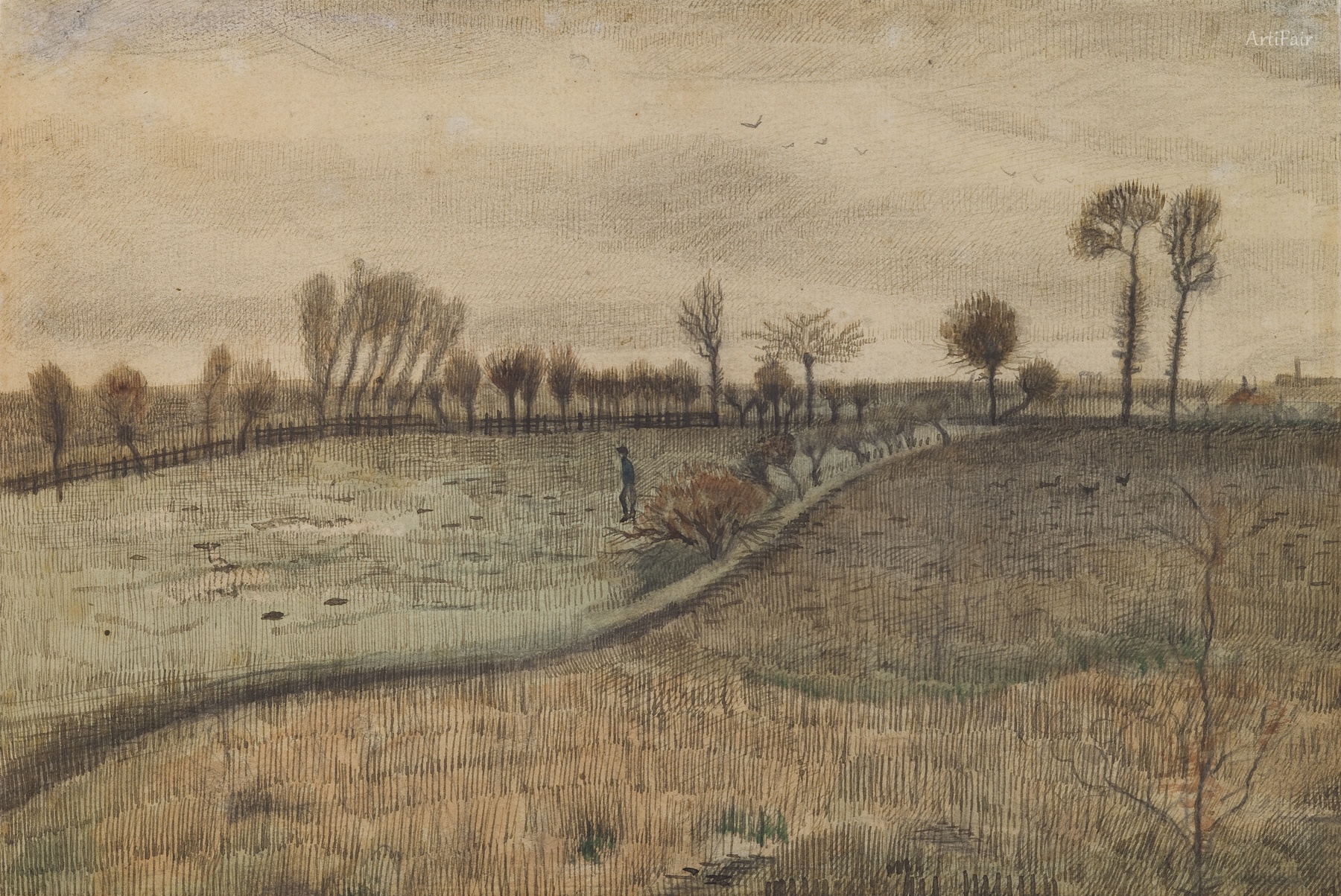
Art Appreciation
In this evocative landscape, muted colors of browns and greens weave together to convey a somber, yet serene atmosphere. The composition is structured carefully; gently sloping fields lead the eye towards the horizon, where a subtle blend of earthy hues reflects the transition of day. Wispy trees stand like sentinels in the background, their silhouettes almost skeletal against the vast expanse of the sky. The solitary figure of a man, perhaps a farmer or a laborer, quietly engages with the land, seemingly in harmony with nature. The texture applied by Van Gogh’s brushstrokes adds depth to the fields, creating a tactile quality that makes one want to reach out and touch the surface. Each stroke resonates with an emotional weight, imparting a feeling of nostalgia and contemplation.
As we delve deeper into this painting, it mirrors not just the physical landscape, but also the inner world of the artist amid a turbulent period in his life. Painted in 1881, this piece reflects Van Gogh’s evolving style, emphasizing nature’s raw beauty and simplicity. The subdued color palette, dominated by earthy tones and soft pastels, evokes a sense of calm, while simultaneously hinting at an undercurrent of melancholy. The isolation of the figure and the sparse detailing of the surroundings suggest a blending of personal and universal themes—our connection to the earth, and the solitude that can come from such a bond. In this artwork, Van Gogh captures a moment that feels both personal and profound, an invitation to pause and reflect on the beauty that surrounds and permeates our existence.